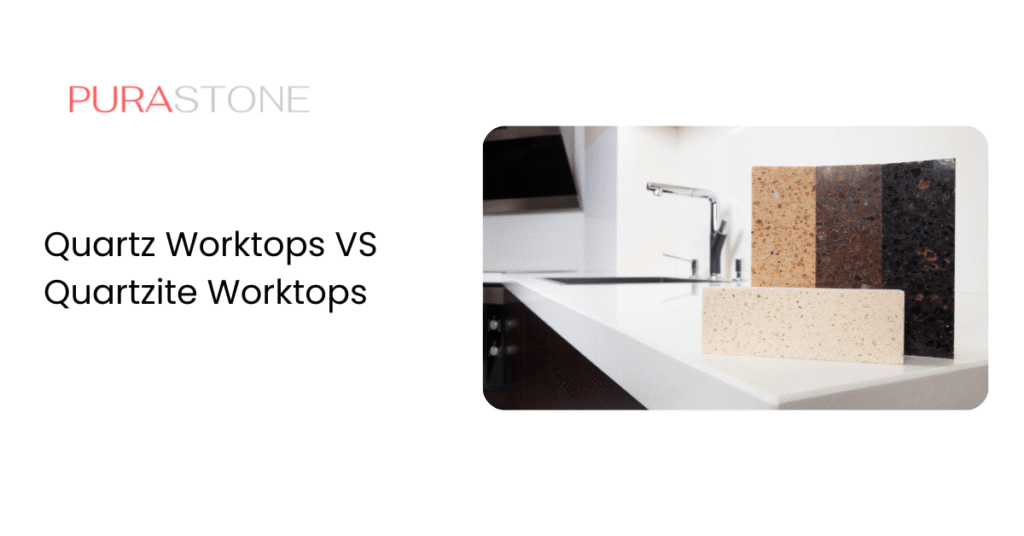Selecting the ideal worktop is a necessity when building a new area or organising a kitchen makeover. Quartz and granite worktops are two of the most common choices. While each material has special advantages and aesthetic appeal, choosing effectively requires knowing how they differ from one another. In spite of discussing comparable choices, including granite worktops and composite stone worktops, this guide explores the main differences between quartz and quartzite countertops.
What Are Quartz Worktops?
With a mixture of resins and pigments, quartz worktops are designed surfaces composed of between 90 and 95% natural quartz crystals. The end product of this manufacturing process is an impermeable, highly durable surface that is impervious to microorganisms, stains, and scratches. Quartz worktops are a flexible option for contemporary kitchens since they come in a large variety of hues and designs.
Advantages of Quartz Countertops
- Low Maintenance: Quartz countertops may be easily cleaned with light soap and water and do not need to be sealed.
- Consistent Appearance: For individuals looking for a uniform image, the manufacturing technique permits uniform hues and patterns.
- Durability: Quartz is ideal for busy kitchens because of its exceptional resistance to chips, scratches, and stains.
Also read: The Benefits of Having a Quartz Worktop
What Are Quartzite Worktops?
Sandstone and quartz were exposed to extreme heat and pressure to make quartzite, a naturally occurring metamorphic rock. Quartzite, like granite worktops, is quarried in slabs and cut to size, in contrast with quartz worktops. The remarkable strength, distinctive veining, and inherent beauty of quartzite surfaces make them highly valued.
Advantages of Quartzite Worktops
- Natural Beauty: Every slab of quartzite is different, with distinct colours and patterns.
- Heat Resistance: Quartzite is perfect for locations close to cooktops since it can tolerate high temperatures.
- Hardness: Compared to granite, quartzite is tougher and provides better resistance to scrapes and scratches.
Granite Worktops and Composite Stone Worktops
Granite worktops are still a popular option among homeowners because of their inherent beauty and robustness. Granite is a natural stone, just like quartzite, although it usually has more colour variation and needs to be sealed frequently.
Composite marble countertops are a great choice for people looking for a combination of engineered and natural elements. However, what is a composite worktop? Surfaces known as composite worktops are created by mixing pigments and resins with natural stone fragments, including granite or quartz. With improved performance, this method produces a long-lasting, impermeable surface that resembles real stone. For instance, a composite granite worktop blends the elegance of granite with the functionality of engineered stone.
Which Worktop Should You Choose?
Your priorities will determine whether you choose quartz or quartzite worktops. Quartz worktops are a great option if you value minimum maintenance, a constant appearance, and a variety of colours. Quartzite worktops might be a better choice if you value stone’s distinctive beauty and natural durability. Additionally, granite worktops and composite stone worktops are attractive options, each with unique benefits.
Conclusion
Style, functionality and maintenance must all be balanced when choosing a worktop. Each material adds unique qualities to your kitchen, whether you choose granite, quartz, quartzite or a composite granite worktop. Make the greatest decision for your house by taking your lifestyle, design tastes, and maintenance needs into account.

